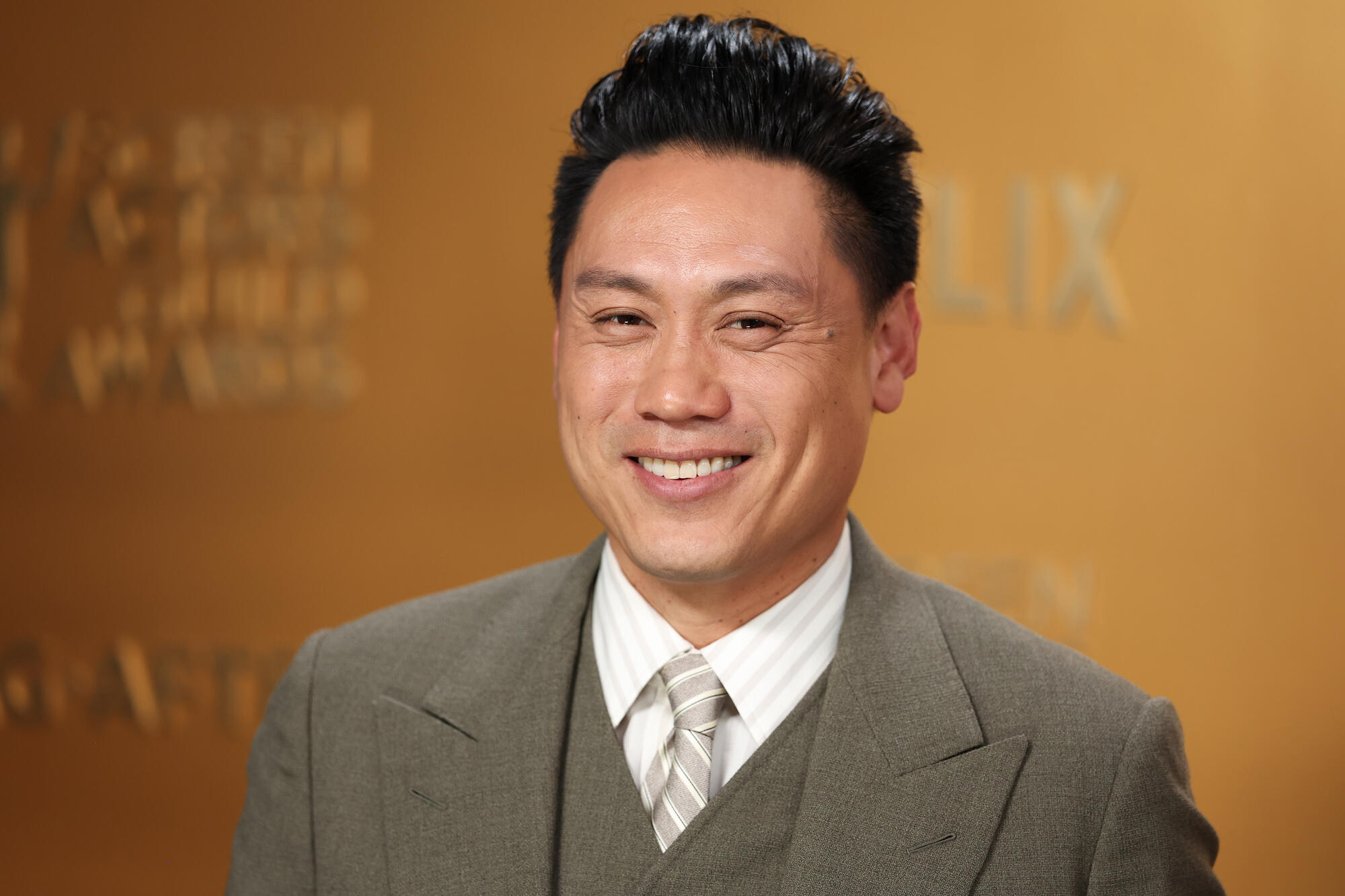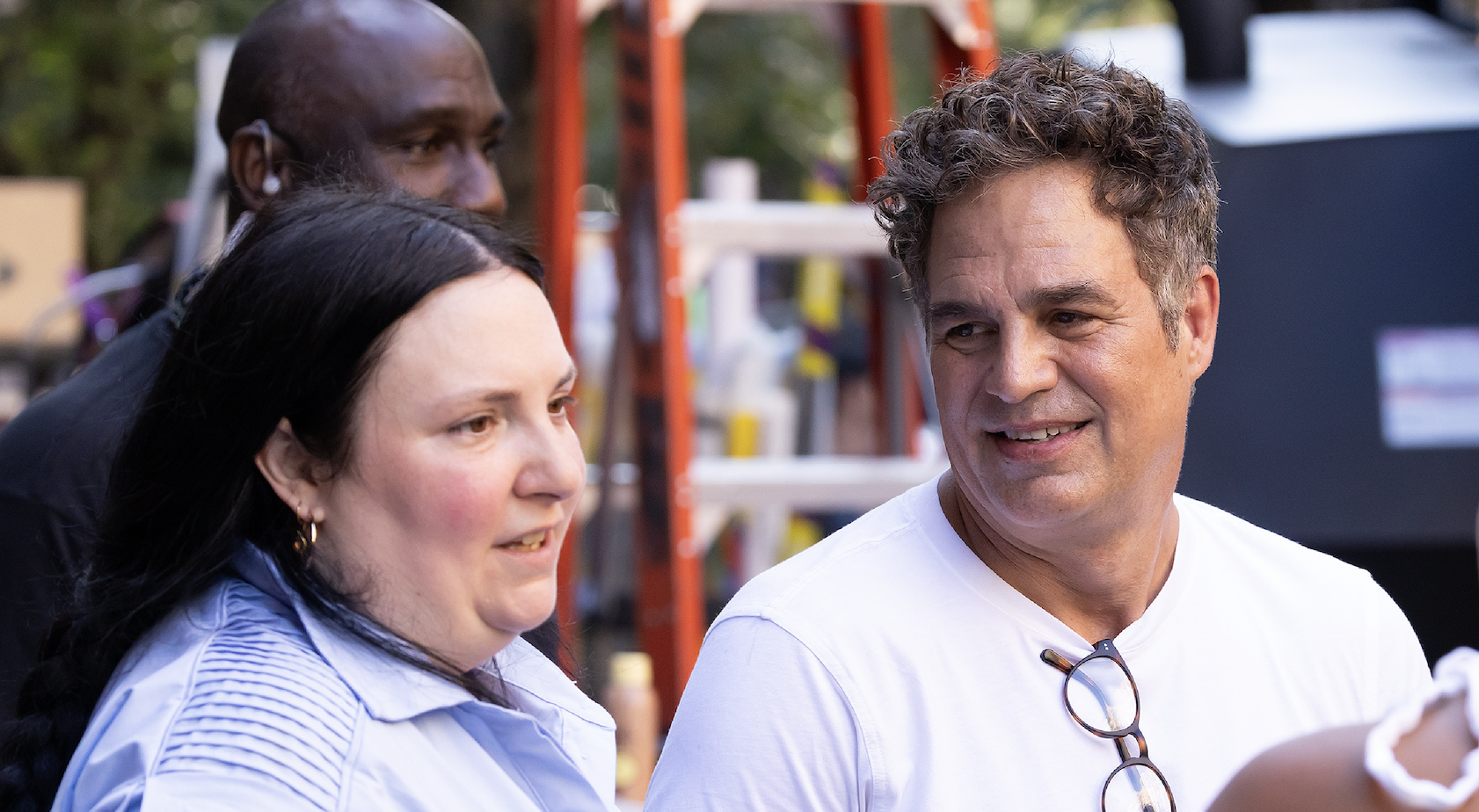Freud thought that, at least for some of us, the guilt comes before the crime. Seeking punishment for a pre-existing (probably Oedipal) feeling of shame and inadequacy, some of the incarcerated seek a reality that fits their self-identity. For them, crime is simply a tool for the good stuff: punishment and pariah status. Criminality as kink.
With his latest neo-noir, Cai Shangjun offers a full-throated endorsement of one of Freud’s more contentious theories with a tale of a toxic romance necessitated by an irresistible vicious cycle. Set in gritty, smoke-filled Guangzhou — the world’s sweatshop and home to the “Shein village” of cut-price clothing makers — Shangjun’s China is not a happy or a healthy place. Nor are his characters. But good people rarely make for good movies.
Meiyun (Zhilei Xin) runs her own clothing brand in a slick shopping mall, where she broadcasts live walkthroughs of her latest products to fussy customers, who complain about issues beyond her control. Almost as curt are the doctors at the local hospital: Meiyun is six weeks pregnant but, with no hearable heartbeat, it’s unclear whether the child will carry. Her gynecologist shows a striking disinterest in Meiyun’s hope that it will come through; even in stoic China, the dispassion is breathtaking, the first sign of a harsh, unfeeling environment to which Meiyun is well-acquainted. The father of the child is Qifeng (Shaofeng Feng), a handsome married man whose own daughter seems to suspect something is off. Qifeng leaves much to be desired, apologizing to Meiyun for pressing her to get an abortion last time she fell pregnant. Meiyun confides, “The past will catch up with me. I will get what I deserve.”
It soon becomes clear what she means. Qifeng is Mr. Right compared to Baoshu (Songwen Zhang, in the best performance of the movie). Now a cancer patient in a room close to where Meiyun is being consulted, he is an older man from Meiyun’s past, long before the mall and the livestreams and the trimmings of an honest life. Baoshu spent time in prison for a car accident prosecuted as a hit-and-run. But Baoshu was asleep in the backseat and Meiyun was behind the wheel.
Baoshu’s decision to take the blame and spend five years behind bars — not even telling his late mom the truth — continues to haunt both of them and causes an inescapable cycle of guilt. Meiyun briefly continues seeing Qifeng, setting up a love triangle that’s like a cursed Chinese interpretation of “Materialists.” The two men’s culture clash is funnier than you might expect and credit to a filmmaker who grasps the tone of what might otherwise have been a dour experience.
But it isn’t fun for long. Baoshu exploits Meiyun’s admittedly well-placed guilt, moving into her place and behaving like a pig (and worse). Meiyun is now forced to confront the shame she was able to disregard while Baoshu was locked up and out of her life. It sends her into a spiral that sets up an arresting second half of the film, which is part soap opera, part thriller.
The one constant is the unhappy couple’s bleak surroundings. Shangjun’s China is a grim setting. It’s humid and gray, petty crime and exploitation abound, and even the hospital could really use a sweep. This is not the 21st-century China that the state is keen to project in films that play abroad — and these characters are not model 21st-century Chinese, either. The decision to allow its production and release (thus far anyway) is presumably the same rationale that saw Khrushchev allow Solzhenitsyn’s “One Day in the Life of Ivan Denisovich,” another story about unjust imprisonment and the burden of guilt, to be published at the height of censorship in 1962. Though it paints a dark picture of Stalin’s Gulags, Solzhenitsyn’s landmark autobiographical story is really about the freedoms Ivan can find within his prison camp over one “almost happy” day. The same applies to Shangjun’s characters, whose unhappiness is primarily caused by their moral mistakes. True freedom, it suggests, is there to take it, if you can only break the cycle.
Easier said than done. “The Sun Rises On Us All” soon becomes the disheartening but affecting story of a pair of broken people for whom salvation is simply unaffordable in a morally expensive world. Meiyun tells Baoshu he might as well stay at her place because “Life is hard everywhere”, a fairly concise expression of the existential nihilism to which they’ve both fallen. The alternative — the unknown — is more frightening still. So they must remain boats against the current, borne back ceaselessly into the past. Westerners have long indulged in the idea that it’s Catholics and Jews who suffer the most guilt. With his latest, Cai Shangjun says: try me.
Grade: B-
“The Sun Rises on Us All” premiered at the 2025 Venice Film Festival. It is currently seeking U.S. distribution.
Want to stay up to date on IndieWire’s film reviews and critical thoughts? Subscribe here to our newly launched newsletter, In Review by David Ehrlich, in which our Chief Film Critic and Head Reviews Editor rounds up the best new reviews and streaming picks along with some exclusive musings — all only available to subscribers.



